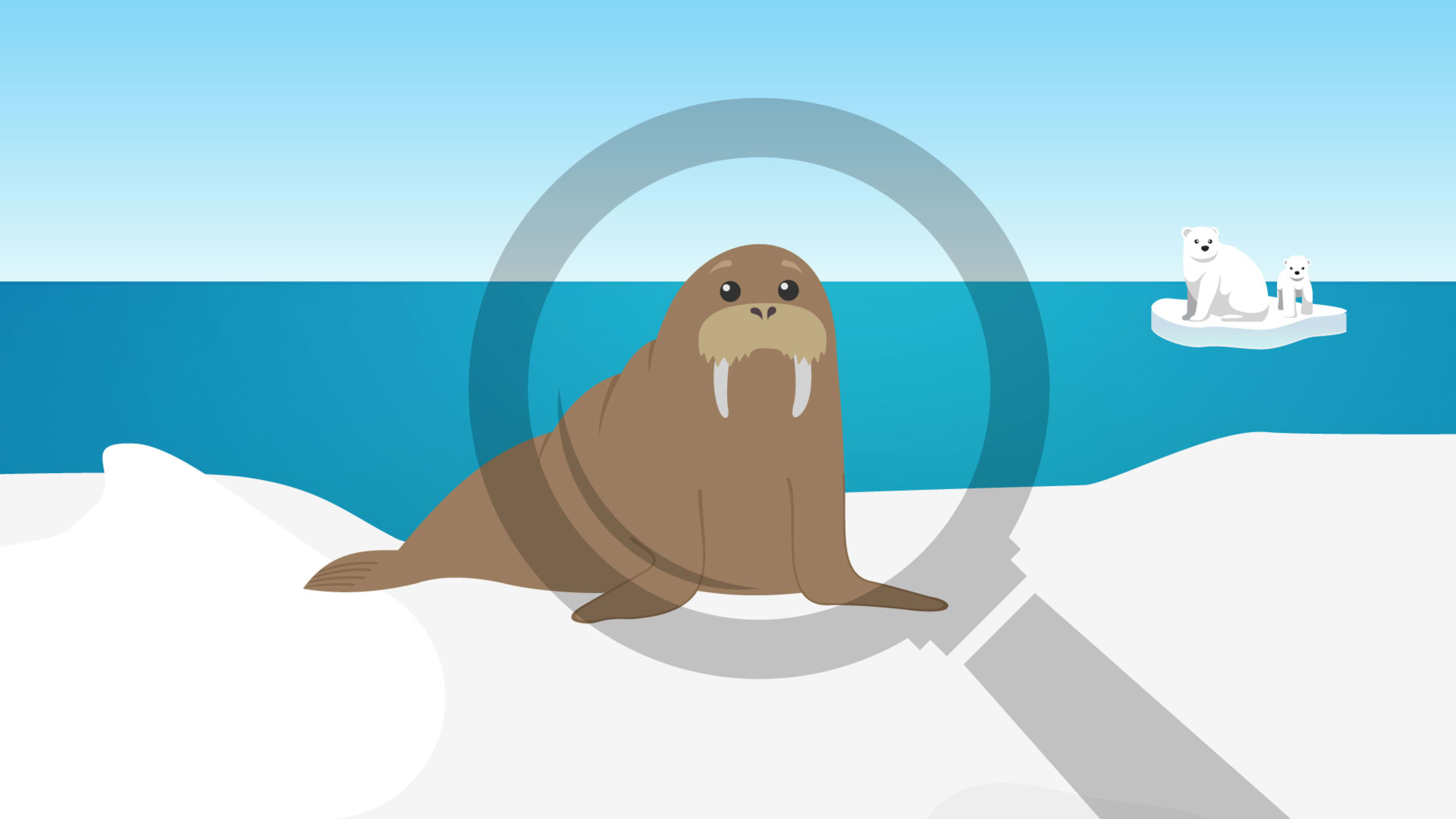With climate change continuing to threaten the Arctic in new and terrifying ways, a group of top scientists and conservationists is trying to recruit half a million “walrus detectives” from across the planet to help them carry out a “walrus census.” The World Wild Fund for Nature and the British Antarctic Survey have partnered with space tech company Maxar Technologies to launch the “Walrus from Space” project, which is effectively a crowdsourced search for walruses along the Arctic’s Laptev Sea. The research is predicted to take four years to complete, and will require scientists and the public to scour thousands of high-res images for signs of these whiskery, tusked Waldos.
How hard is it to find two-ton mammals that lay on beaches in large colonies? you may wonder. The British Antarctic Survey’s Hannah Cubaynes—whose official job title is Wildlife from Space Research Associate—explains that using traditional methods to assess walrus populations isn’t effective because the creatures actually “live in extremely remote areas, spend much of their time on the sea ice, and move around a lot.” Her group’s solution to this problem was to collect satellite imagery from the areas where walruses live, and go through them one by one. That project would be far too massive for their team alone, so Cubaynes adds: “We need help from thousands of citizen scientists to help us learn more about this iconic animal.”
Although walruses play a vital role in the Arctic ecosystem, scientists admit they aren’t sure how many exist along the coastline of Russia’s inaccessible Laptev Sea, which measures almost 10,000 square miles—almost as big as Massachusetts, to give you an idea of this task.
The WWF says the project is crucial because, like every other animal up there, walruses are feeling the effects of climate change in the Arctic, which is warming almost three times faster than the rest of the world. Walruses need sea ice to rest, breed, and eat. But sea ice is melting, and the organization says once the problem gets serious enough, the walruses will have to relocate to land, which will likely cause overcrowding and require them to expend vast amounts of energy to get their food from the ocean.
Eagle-eyed walrus detectives can join the hunt by visiting wwf.org.uk/walrusfromspace, where they’ll be asked to create an account, then complete a training module before getting started.
Recognize your brand’s excellence by applying to this year’s Brands That Matter Awards before the early-rate deadline, May 3.
